For this edition of Plant-Based Leaders, we interviewed Kris Lutt, President of Sustainable Materials and Strategic Initiatives at ADM. A PBPC member and a longstanding force in industrial biomaterials, ADM is leveraging more than 120 years of agricultural expertise and an expansive U.S. footprint to drive innovation in biomanufacturing through its growing Biosolutions business — delivering new value to customers, farmers, and global supply chains.

Kris Lutt, President of Sustainable Materials and Strategic Initiatives, ADM
Q
ADM has been a leader in the industrial biomaterials sector for over a century. How has that legacy shaped your current initiatives?
A
ADM’s founding dates to 1902, by John Daniels. It began as a linseed-crushing operation in Minnesota. Remarkably, we still operate a linseed facility there, supplying industrial markets.
When George Archer joined Daniels, they formed Archer Daniels Midland, the company we know today.
Historically, we’ve served biomaterials markets: our starch business has supplied paper and corrugated industries for decades, and we’ve provided citric acid for industrial cleaners and oils for manufacturing lubricants.
Throughout our history, ADM has been customer-focused and reliable. We leverage our infrastructure and logistics to solve challenges at scale. Today, we’re intentionally expanding our biomaterials portfolio to meet demand for renewable, bio-based solutions that drive long-term value and innovation.
We now employ 18,000 people in the U.S. across 400 facilities in 30 states.
Over 122 years, we’ve diversified across regions and expanded internationally. Our global headquarters are in Chicago, with North American headquarters in Decatur, Illinois.
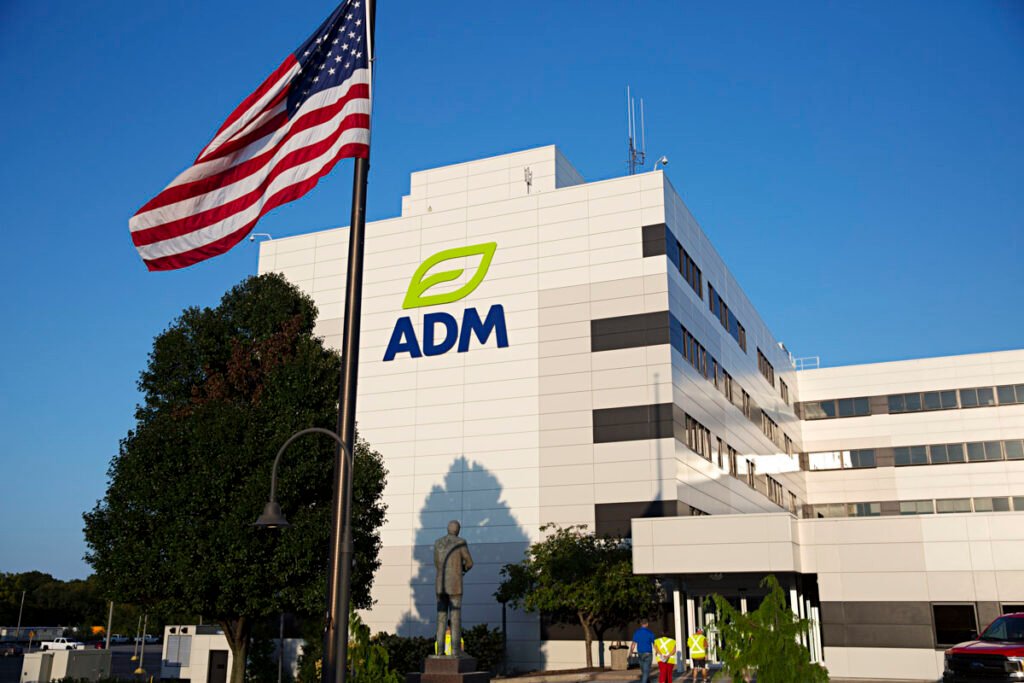
Q
The company is increasing its focus on Biosolutions. How has that business evolved and driven new interest?
A
In the past, we’d respond when customers approached us with novel uses — say, someone curious about a new application for corn.
As more customers started coming to us with sustainability goals in mind, we saw an opportunity to do more. We built a dedicated Biosolutions team — bringing together specialists in polymer chemistry, fermentation, and process engineering — and invested in pilot-scale facilities to help bring new ideas to life. This shift from reactive to proactive has unlocked new markets and strengthened our customer relationships.
Today, we’re developing intentional solutions for this area. Now, instead of waiting for someone to say, “Can you help with this?”, we’re going to them and saying, “Here’s something new — it’s renewable, it’s scalable, and it aligns with what you’re trying to achieve.” It’s new, it’s exciting, it’s a growing area, and it’s addressing needs that we have that tie into market demand and continued interest in more resilient and bio-based value chains. Perhaps most importantly, biomanufacturing is going to create new markets for farmers and agricultural products.
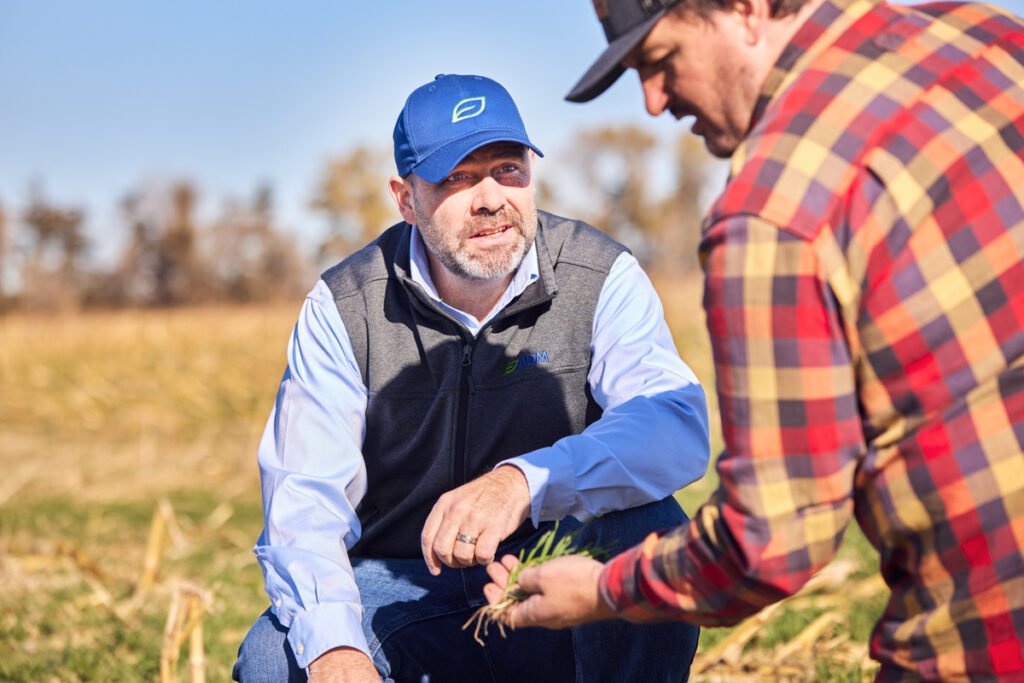
Q
You highlighted paper and packaging as a legacy sector. How is Biosolutions leveraging those relationships and products?
A
We’ve been a leading supplier in that space for a long time. Our primary focus has been on non-modified starches, because that’s where we had the expertise and the footprint to support it.
Now, it’s about looking across the broader ADM portfolio and asking: What else do we have that comes out of these facilities that could create value? These are big operations, producing big volumes — not just main products, but co-products and side streams too. So, we’ve really renewed our focus to examine everything an ADM plant produces and to think about how we can put that to work for our customers.

Q
Research and development appear to be rapidly evolving across the sector. How is ADM helping drive that movement?
A
What’s really started to shift is the technology around enzymes and catalysts. Converting carbohydrates used to be costly and required complex downstream processing, but that’s changing. Thanks to advances in enzyme and catalyst development, especially with the help of artificial intelligence, the process has become faster, more efficient, and more affordable.
I see enzymes and catalysts driving the next wave of growth. They’re opening up new opportunities and giving us the tools to meet demand in ways that just weren’t possible before.
The next few years will bring even more breakthroughs, and for us to stay at the forefront, it’s essential that we keep developing the next generation of scientists and engineers.
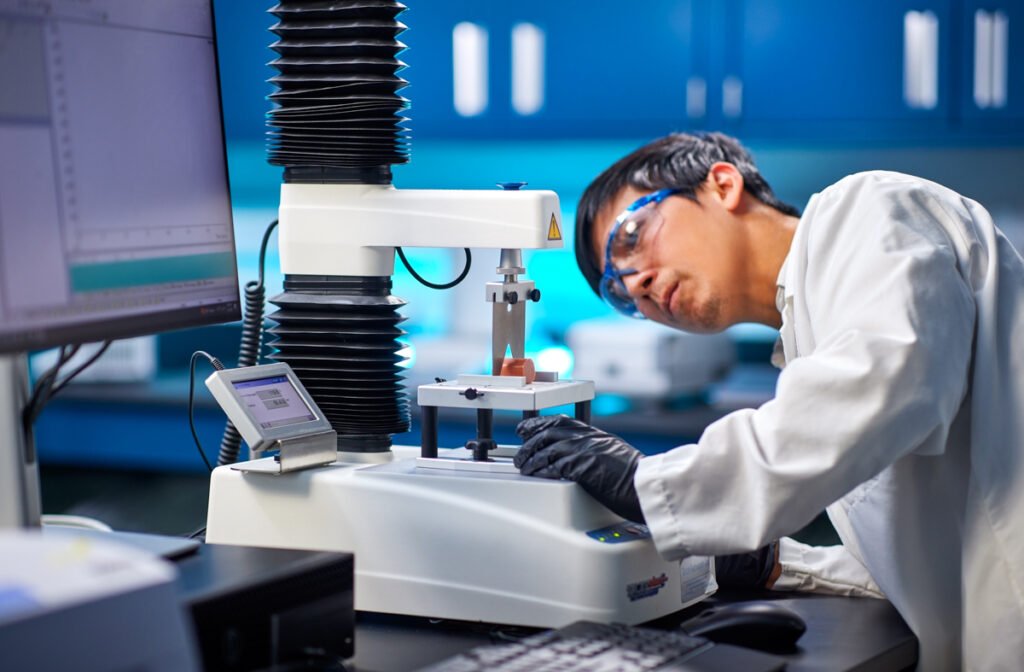
Q
Can you expand on how artificial intelligence is being put to use inside ADM?
A
AI is changing how we develop and run these operations, making them far more efficient. You can now process thousands, even millions, of data points from how a system performs and really zero in on what’s optimal, whether that’s in design, day-to-day operations, or long-term strategy.
It’s not just about improving what we already do — it’s about opening up possibilities we hadn’t seriously explored before.
Q
ADM made a major strategic decision to integrate Precision Fermentation and Biosolutions. What have been the benefits of that reorganization?
A
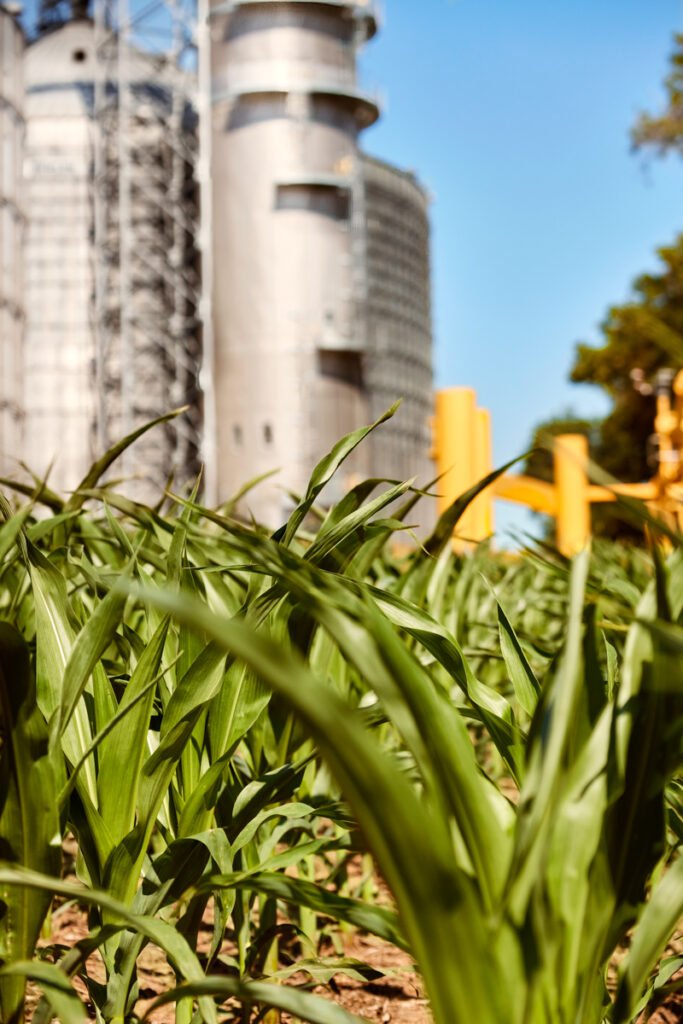
The decision really came down to the strong synergies between Precision Fermentation and Biosolutions. Our fermentation assets sit within the Carbohydrates Solutions business unit, so there was already a natural fit in how and where we produce. Plus, Biosolutions provides key feedstocks like carbon and nitrogen, which creates a tight loop for supporting and scaling new developments.
What’s great is how the teams complement each other. Precision Fermentation is out exploring what’s next, working with startups and tech partners, while Biosolutions is focused on delivering scalable, customer-ready solutions. That back-and-forth helps both sides: Biosolutions brings in real-world needs, and Precision Fermentation finds the technology to meet them.
Q
You mentioned working with startups. What does that journey typically look like for the customer? Do they come to you with a need, or do you develop a product first and take it to market?
A
It can really go both ways. Startups often come to us looking for a partner who can help scale their idea — and that’s where our strengths come in. We’ve got deep fermentation expertise, large-scale production, global logistics, and a proven ability to supply consistently. That stability matters a lot, especially to young companies trying to grow.
At the same time, we’re always innovating internally to expand bio-based product opportunities and engage with customers in meaningful ways.
Q
What are the key priorities and growth areas for the Biosolutions portfolio as demand increases?
A
We’re focused on several key areas, but the biggest emphasis is on fermentation, plant health, chemicals, and paper packaging.
At ADM, we tend to do our best work in areas that are large in scope and impact, so we’re really making sure our efforts are concentrated on things that can make a big difference. It’s about being strategic, prioritizing high-growth areas where ADM can scale impact to deliver values for customers and producers alike.
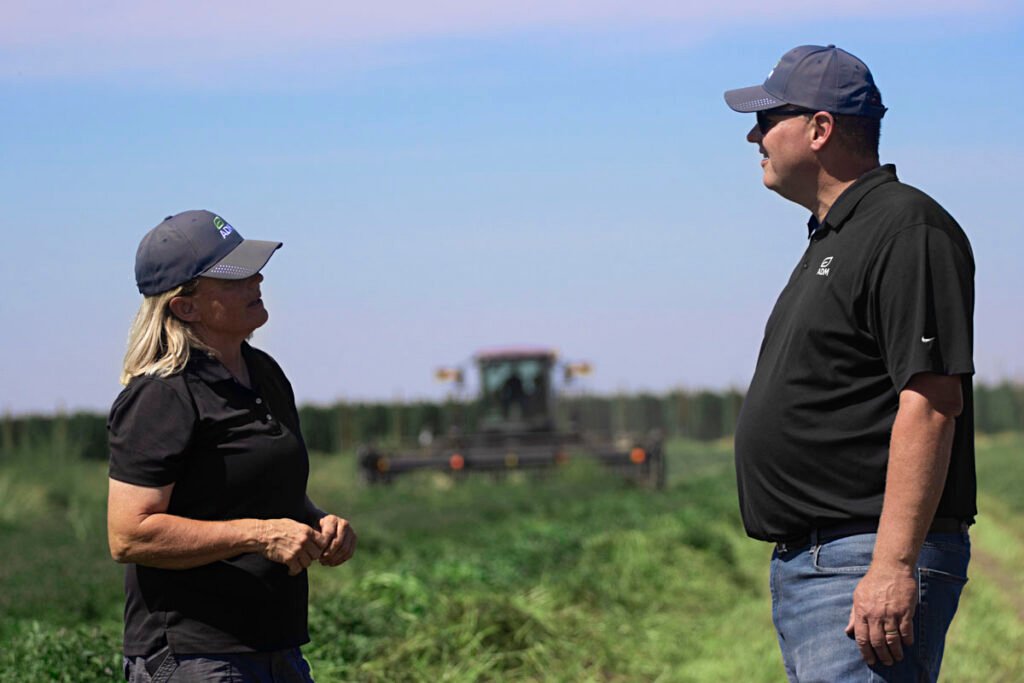
Q
How should policymakers view our industry?
A
Biomanufacturing creates demand for U.S. agriculture, strengthens domestic manufacturing, supports rural economies and enhances supply chain resilience — making it a critical part of advancing national priorities. The pandemic showed how fragile supply chains can be, and biomanufacturing helps address that.
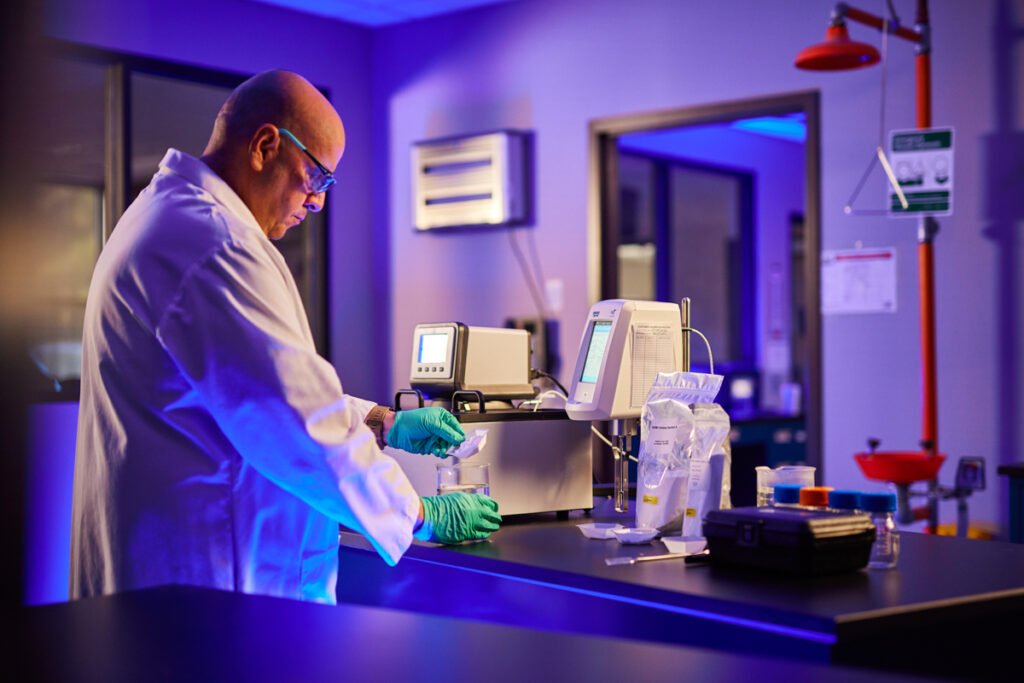
Q
And what can policymakers do to help foster growth?
A
For this to scale, we need government support, especially in the form of public-private partnerships, grants, and tax policies that reduce capital investment costs. By investing in existing infrastructure and leveraging industrial know-how, we can help scale these technologies and stimulate the bioeconomy.
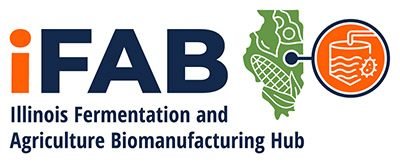
For example, ADM is a member of the Illinois Fermentation and Agriculture Biomanufacturing Hub (iFAB) which brings together academia, state and local government, economic development agencies at the state and federal level, labor and industry to create an ecosystem to support innovation in biomanufacturing in Illinois. iFAB received a critical grant from the U.S. Department of Commerce’s Economic Development Administration through its Tech Hub Program. For this sector to thrive, continued investment in infrastructure and developing the ecosystem will be critical.
Q
What is PBPC doing to support your work, and what’s their broader impact on the industry?
A
This industry is very much driven by policy, and a unified approach is key to influencing its direction. PBPC plays a crucial role by amplifying our collective voice, ensuring that our industry’s interests are represented at the table. Their work is vital in securing a fair and level playing field, not only in comparison to other industries but also globally.
PBPC strikes the right balance between providing support for members and creating opportunities for us to be heard, which puts us in a strong position for continued growth and development.
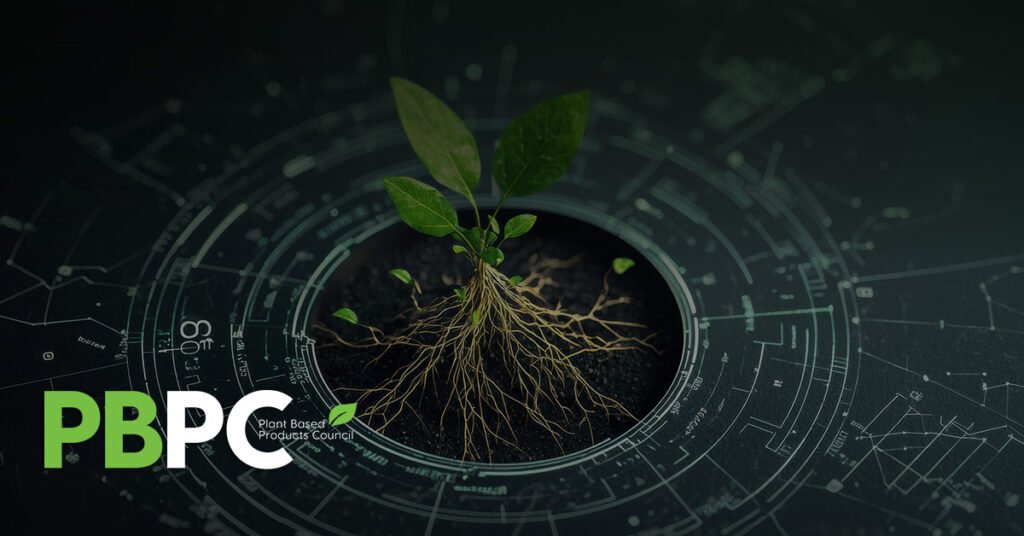
PBPC plays a crucial role by amplifying our collective voice, ensuring that our industry’s interests are represented at the table.
Interested in learning more about how plant-based products contribute to a more sustainable economy? Sign up for our newsletter.
The post Plant-Based Leaders | ADM appeared first on Plant Based Products Council.















